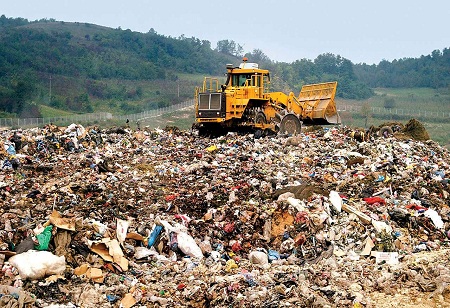The global
waste management market size is anticipated to reach USD 2339.8 billion by 2027, growing at a CAGR of 5.5 percent during the forecast period. The growth of the global market is driven owing to the proactive government measures formed to reduce illegal dumping. Moreover, the increase in population and globalization has increased the overall waste volume, globally.
According to research, in the year 2012, the urban population has produced over 1.3 billion tons of municipal solid waste. This is anticipated to increase to 2.2 billion tonnes by 2025. Furthermore, rapid industrialization in developing countries has resulted in the development of various other industries such as chemical, oil and gas, automobile, and medical industries. These generate a huge amount of waste which leads to various kinds of pollution. The aforementioned factors are anticipated to contribute significantly toward the growth of the global market.
However, the increasing recycling costs are expected to pose challenges to the waste management market. Not just this, lack of proper waste collection infrastructure in many regions, the increasing landfill prices, and fuel costs are also expected to negatively impact the growth of this market.
The waste management process includes various sub-process such as waste collection, waste processing, recovery, and disposal. These are performed most efficiently and effectively. The main focus of waste management is to recycle, reduce, and reuse wastes. Industries involved in the waste management processes are focusing and working on those materials which can be easily recycled, disposed of, or reused. Therefore, industries working on waste management projects are looking to reduce costs and increase profitability.
Increasing energy needs and significant growth in manufacturing activities have resulted in the intense growth of the waste management sector. Numerous enterprises across the globe are funding for the development of waste management.
Residential sector witnessing significant gains
By region, North American and European countries are anticipated to account for major market share due to developed infrastructure and an increasing number of government regulations that are mandatory for waste management in numerous industries.
Based on the type, the waste management market is classified into two types – municipal waste and industrial waste. Plastics holds a significant market share of the municipal and industrial solid wastes that are being generated. Plastic is found across various major waste categories; however, it holds a dominant position in the packaging industry.
The surge in demand for municipal solid waste management across the residential sector is anticipated to witness greater gains owing to the ongoing rapid urbanization with the rise in consumer spending towards the manufactured goods sector. Some of the important issues that are associated with the mismanagement of solid waste include declining public health, productivity, contaminated water bodies, and airborne emissions.
